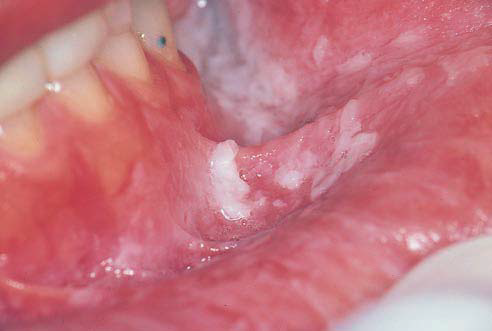There are several reasons why you may find skin peeling in mouth. Some of these are relatively harmless, but others can be very serious. Doctors can usually identify and treat any peeling caused by irritation or burns. However, mouth damage due to allergic reactions or disease may need further and more serious medical attention. You’ll need to see a healthcare professional if your symptoms persist for several days. The treatment you’ll receive for inside of mouth peeling depends on the cause. So, read on if you’re asking yourself, “Why is it that the inside of my mouth is peeling?”

What Causes Inside of Mouth Peeling?
Irritation
Tissue can become damaged when a person continually chews on hard objects, such as vitamin tablets, lozenges and mints. If you’re not producing sufficient saliva to break down these objects, the problem can worsen.
Inside of mouth peeling can also be caused by frequent or over-zealous tooth cleaning with a hard-bristled brush.
Finally, people often unconsciously bite their cheeks when they are nervous or stressed.
All these actions cause mild trauma to the inside of the cheeks. The damage usually heals quickly, with white dead skin on the surface sloughing off.
Burn
Another common reason for peeling and shedding of the oral mucosae is that the mouth has suffered burns from hot food and drink. Food containing capsaicin, a potent organic compound found in chili peppers, can also produce a burning effect.
Allergic Reaction
Certain drugs like antibiotics may stimulate an allergic reaction resulting in mucosal shedding. The patient may have sensitive to particular chemicals in toothpaste or mouthwash, including whitening, flavoring and tartar control agents. Food allergies, such as nut, legume, and certain fruit allergies, can also produce oral shedding.
Smoking
Smokers will often realize that “the inside of my mouth is peeling”. That’s because chemicals in tobacco smoke can irritate epithelia, resulting in changes to the appearance of oral tissues. Furthermore, smokers are at increased risk of developing problems with their teeth and oral cancer.
Medical Conditions
Peeling mouth tissue may indicate that you have an underlying autoimmune disorder. For instance, if you have pemphigus vulgaris, your body produces antibodies against the skin component holding the tissue together. Lichen planus is another autoimmune condition that can cause flaking of white tissue, pemphigus, lupus, and erythema multiforme. There are even certain kinds of oral cancer that lead to peeling skin.
What Can I Do to Stop Skin Peeling in Mouth?
Although inside of mouth peeling is irritating, it is rarely serious. To treat the peeling, you need to target the cause. Once you’ve identified what’s at the root of your problems, you need to stop using it, whether it be toothpaste, medicine, tobacco, or a type of food or drink. After about a week, you should see an improvement in your symptoms.
An additional step you can take is to use a soft toothbrush when cleaning your teeth. Or try washing your mouth 3-4 times a day with warm salt water to soothe the delicate oral tissues. If you’re not seeing an improvement or have been unable to identify the cause of your problems, make an appointment to see your doctor so you can receive the correct treatment.
For general good mouth health, the following tips may help:
Choose a healthy balanced diet.
Limit your alcohol consumption.
Cut out smoking and all tobacco products (cigarettes, chewing tobacco, cigars, pipes, snuff, and marijuana joints).
Clean your teeth twice daily with fluoride toothpaste and a soft-bristled brush with good technique.
See your dentist and dental hygienist frequently to check up and clean your teeth.
Apply lip balm with a high sun protection factor.

View All Comments /Add Comment